International
Mexico requests extradition of ‘Mini Lic’ for murder of journalist Javier Valdez
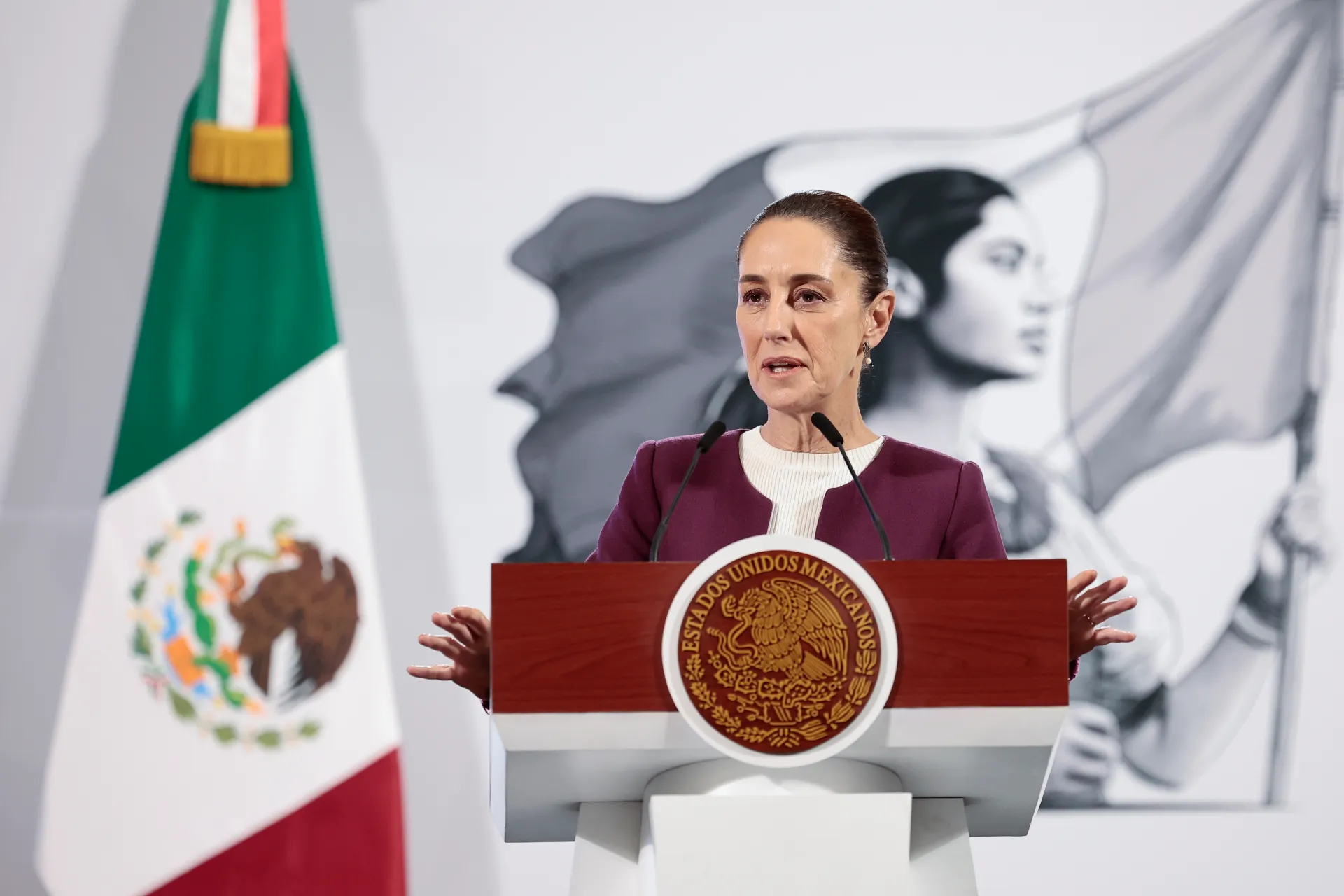
The Mexican government has requested the extradition of Dámaso López Serrano, a former high-ranking member of the Sinaloa Cartel, who is accused of masterminding the 2017 murder of Mexican journalist Javier Valdez, the Attorney General’s Office announced on Tuesday.
López Serrano, known as “Mini Lic,” was arrested last Friday in Virginia, United States, on charges of fentanyl trafficking, a crime he committed while on parole.
“This is the key issue for us, he [López Serrano] is the mastermind of this murder. The rest of the perpetrators are already processed and in jail, he was the one missing,” said Attorney General Alejandro Gertz.
“We immediately made the extradition request,” the official added during the routine morning press conference of President Claudia Sheinbaum.
Valdez, an award-winning reporter specializing in drug trafficking and correspondent for AFP and the newspaper La Jornada, was murdered on May 15, 2017, in front of the office of his magazine Riodoce in Culiacán, the capital of Sinaloa state.
“Mini Lic” was originally arrested in 2017 when he voluntarily turned himself in to U.S. authorities and pleaded guilty to trafficking methamphetamine, heroin, and cocaine. In 2022, he was released on parole.
Gertz confirmed that the Mexican Attorney General’s Office had requested López Serrano’s extradition “countless times,” but Washington had declined to act on the request because he had become a “protected witness” for the U.S. government and “was providing a lot of information.”
“Now, with this situation where they themselves are acknowledging that this individual is still committing crimes, I think there are more than enough reasons for them to support us,” the prosecutor added.
The Sinaloa Cartel is one of the largest drug trafficking organizations in Mexico and was founded by Joaquín “El Chapo” Guzmán, who is serving a life sentence in the United States.
Culiacán has been shaken by a wave of murders since the arrest of Ismael “Mayo” Zambada, another key leader of the cartel alongside Guzmán, on July 25 in New Mexico, United States.
International
Ukraine declares nationwide energy emergency amid russian attacks and extreme cold
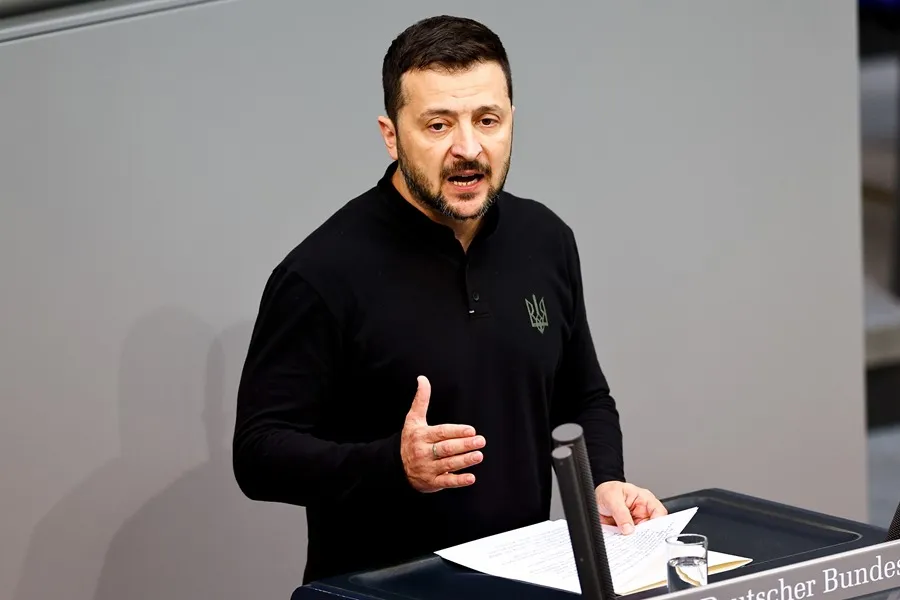
The Ukrainian government on Wednesday declared a nationwide energy state of emergency amid continued Russian military attacks and extreme winter weather, with nighttime temperatures dropping as low as minus 18 degrees Celsius.
“The consequences of Russian attacks and worsening weather conditions are severe (…) Overall, a state of emergency will be declared for Ukraine’s energy sector,” Ukrainian President Volodymyr Zelensky said in a statement posted on social media following a meeting with senior officials.
Zelensky announced the creation of a “permanent coordination headquarters” to manage the crisis in the capital, Kyiv, and tasked former defence minister and current energy chief Denys Shmyhal with overseeing support efforts for affected individuals and communities, including addressing power outages, heating shortages and other “practical issues.”
“There are many problems that require urgent solutions,” the president said, noting that repair crews, energy companies, municipal services and the State Emergency Service are working “around the clock” to restore electricity supplies. Kyiv has been particularly affected after Russian strikes last Friday disabled key parts of the power grid, as daytime temperatures hover around minus 12 degrees Celsius and plunge to minus 18 at night.
Zelensky added that public authorities will “maximize efforts with partners to obtain the necessary equipment and additional support,” while the government will ensure “maximum deregulation of all processes” to speed up the connection of backup power equipment to the grid. He also confirmed that work is underway to significantly increase electricity imports into Ukraine.
The Ukrainian leader further instructed his Cabinet to review curfew regulations in light of the extreme cold, arguing that citizens must have the greatest possible access to assistance centers, while businesses should be given flexibility to plan their operations according to the state of the energy system.
International
France joins Denmark’s ‘Operation Arctic Resistance’ in Greenland amid U.S. tensions

French President Emmanuel Macron confirmed in the early hours of Thursday (Wednesday afternoon in El Salvador) that France will take part in “Operation Arctic Resistance,” after Denmark announced it would expand its military presence in Greenland amid rising tensions with the United States over Washington’s stated ambitions regarding the semi-autonomous territory.
“At Denmark’s request, I have decided that France will participate in the joint exercises organized by Denmark in Greenland, ‘Operation Arctic Resistance,’” Macron said in a brief message posted on social media at 5:18 p.m.
The French president added that “the first French military elements are already on their way, with others to follow,” though he did not specify the number of troops being deployed or the scale of France’s planned contribution.
The governments of Sweden, Norway and Germany have also confirmed the deployment of military contingents to Greenland. Germany’s armed forces will send a 13-member reconnaissance team to the Greenlandic capital, Nuuk, to take part in a mission scheduled to run from Thursday through Saturday, according to the German Ministry of Defence.
Denmark’s announcement came shortly before a Danish delegation met at the White House with U.S. Vice President JD Vance and Secretary of State Marco Rubio to discuss Washington’s plans regarding Greenland. Copenhagen said the military activities would be carried out “in close cooperation with NATO allies.”
International
Iran closes airspace amid U.S. threats and deadly nationwide protests
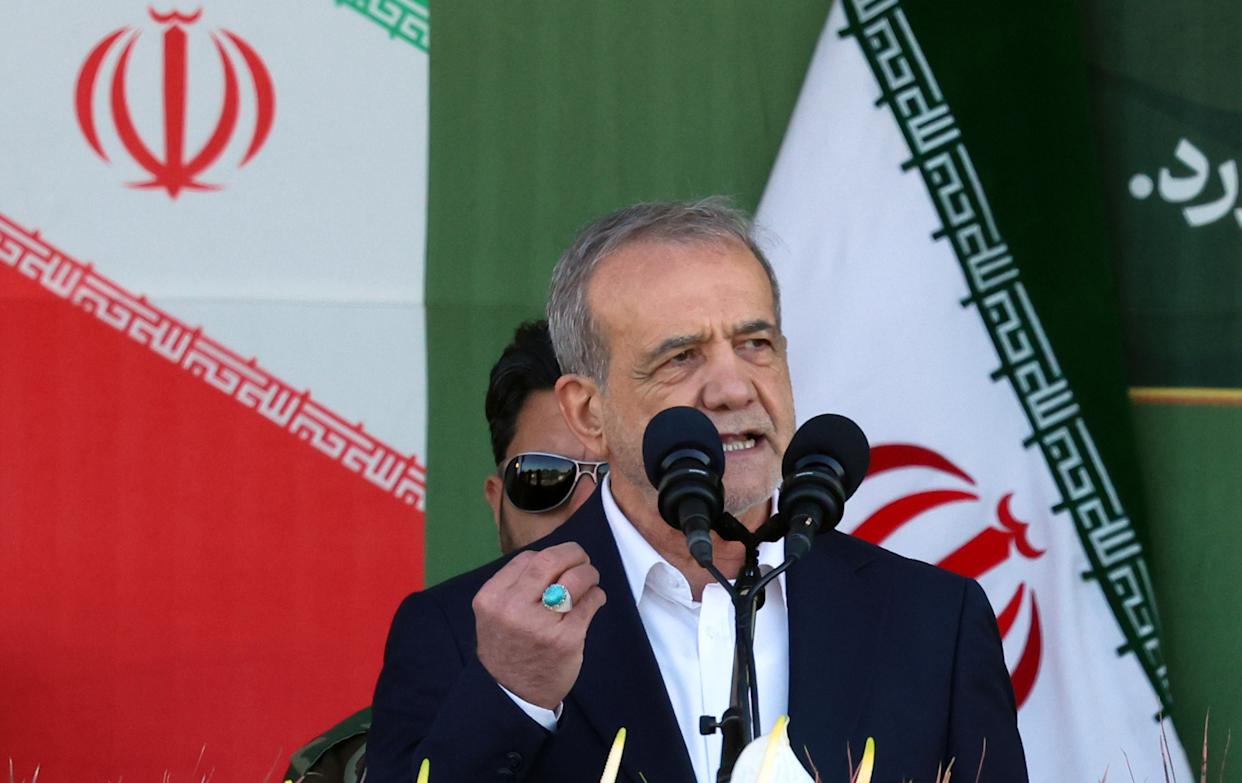
Iranian authorities closed the country’s airspace in the early hours of Thursday, according to data from flight-tracking website FlightRadar24, amid growing threats of a possible U.S. attack as protests across the country continue and have reportedly left thousands dead.
According to FlightRadar24, the Iranian government suspended all flights to and from the country, except for international flights that have received special authorization. The notice was initially issued for a duration of just over two hours.
The move comes after U.S. President Donald Trump in recent days threatened to strike Iran if its security forces failed to halt the deaths linked to weeks-long protests that began in Tehran and later spread to other Iranian cities. Despite the threats, the White House said diplomacy remains Trump’s preferred option.
Speaking from the Oval Office on Wednesday, Trump claimed that “the deaths in Iran have stopped” and said there would be no executions of protesters following his warnings to Tehran. He added that his administration would seek to verify those claims.
“I’ve been told the deaths in Iran are stopping. They’ve stopped, and that there are no plans for executions,” Trump told reporters, cautioning that the United States would be “very upset” if those assurances proved to be untrue.
The statements contrast with reports from rights groups. The Norway-based NGO Iran Human Rights (IHRNGO) said on Wednesday that more than 3,400 people have been killed since the protests erupted. Meanwhile, Kurdish-Iranian rights group Hengaw reported this week that a 26-year-old Iranian man, Erfan Soltani, was facing execution as of Wednesday.
-

 International3 days ago
International3 days agoDeadly van accident near Brazil border leaves 11 dead in Bolivia
-

 Central America3 days ago
Central America3 days agoU.S. and El Salvador maintain close partnership, embassy says
-

 International3 days ago
International3 days agoU.S. to host Danish and Greenlandic Foreign Ministers at the White House
-
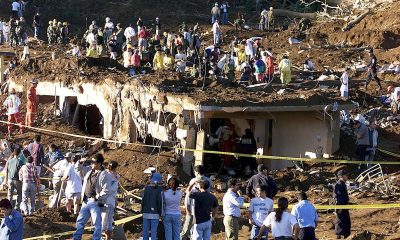
 Central America3 days ago
Central America3 days agoTaiwan’s $10 million donation after 2001 earthquakes allegedly diverted in El Salvador
-

 International3 days ago
International3 days agoDominican court postpones hearing in deadly nightclub collapse case
-

 International3 days ago
International3 days agoPolice hunt gunmen after fatal shooting in Corsica
-

 International3 days ago
International3 days agoEx-President accused of bid to establish dictatorship as verdict nears in South Korea
-

 International3 days ago
International3 days agoVenezuelan opposition leader dedicates Nobel Prize to Trump
-
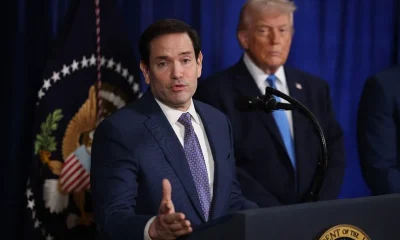
 International5 days ago
International5 days agoU.S. Issues Urgent Evacuation Call for Citizens in Venezuela
-
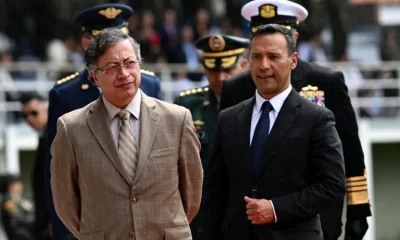
 International2 days ago
International2 days agoColombian Defense Chief Meets U.S. Officials to Advance Bilateral Narcotics Strategy
-

 Central America2 days ago
Central America2 days agoBukele warns crime can become a ‘parallel government’ during visit to Costa Rica
-

 International1 day ago
International1 day agoIran closes airspace amid U.S. threats and deadly nationwide protests
-

 International1 day ago
International1 day agoUkraine declares nationwide energy emergency amid russian attacks and extreme cold
-

 International1 day ago
International1 day agoX moves to block Grok from creating sexualized images of real people amid legal scrutiny
-
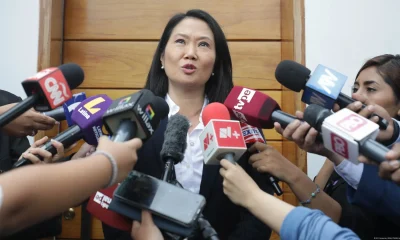
 International2 days ago
International2 days agoPeruvian Court Orders Definitive Dismissal of Money Laundering Case Against Keiko Fujimori
-

 International2 days ago
International2 days agoU.S. to suspend visa processing for applicants from 75 countries
-

 International1 day ago
International1 day agoFrance joins Denmark’s ‘Operation Arctic Resistance’ in Greenland amid U.S. tensions
-

 International1 day ago
International1 day agoU.S.–Denmark tensions escalate as Trump pushes NATO to back U.S. claim on Greenland
-

 International1 day ago
International1 day agoUK Intelligence estimates russian casualties in Ukraine at over 1.2 million
-

 International1 day ago
International1 day agoHillary Clinton skips Epstein inquiry as house panel threatens contempt charges
-

 International1 day ago
International1 day agoSwiss Canton of Valais Grants Emergency Aid to Victims of Crans-Montana Bar Tragedy


























